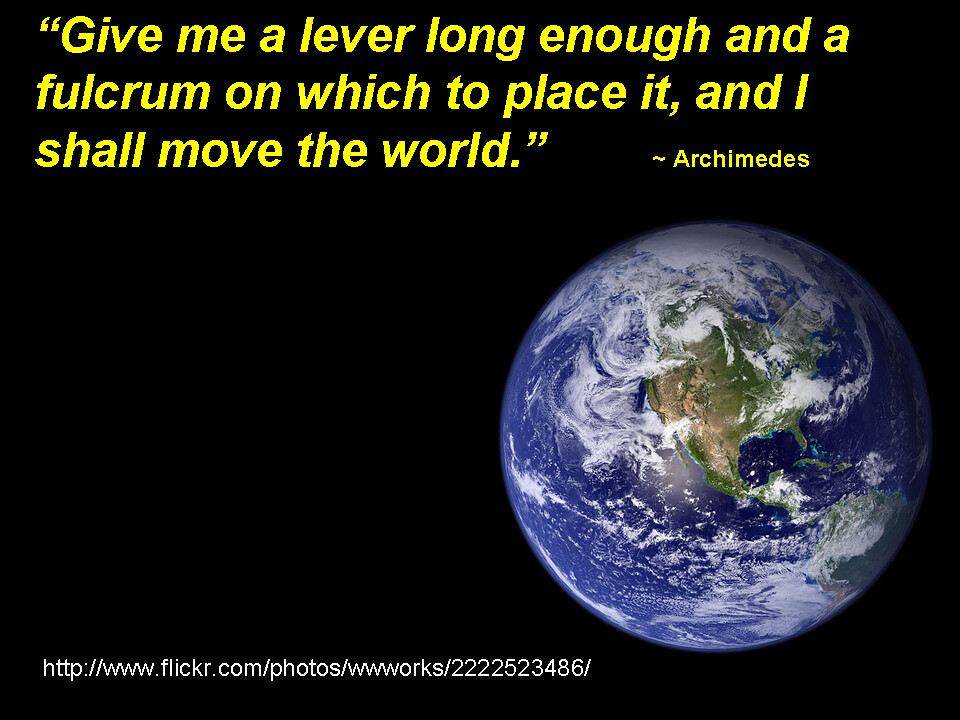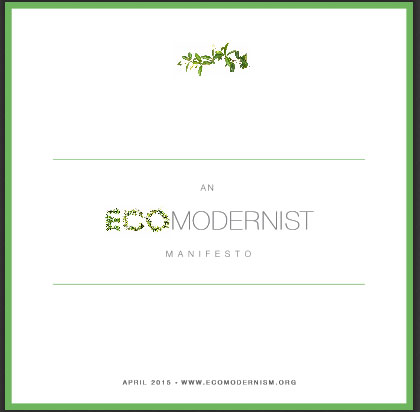Friday, May 29, 2015
Emerging climate change landscape II. The Balitc Sea
by
Werner Krauss
Fieldnotes from an emerging climate change landscape
by
Werner Krauss
 |
| Foto by Martin Mahony |
Monday, May 18, 2015
Give me a narrative and I will change the world
by
@ReinerGrundmann
On March 10 The
Guardian dedicated its Letters to the editor page nearly entirely to
comments from readers about climate change. These were triggered by the paper’s
divestment campaign and addressed various issues related to options for practical
action about climate change, be they individual or on the level of public policy.
Beate Ratters Umfrage unter Hamburgern - 2015
by
Hans von Storch
Auch in 2015 hat Beate Ratter (Geographisches Institut Uni Hamburg und Institut für Küstenforschung, HZG) wieder FORSA Hamburger Bürger fragen lassen, wie sehr man sich Sorgen macht in Hamburg zum Thema Klimawandel. Es gibt keine großen Änderungen gegenüber den Vorjahren - tatsächlich zeigt die Sorge Auf- und Abwärtsbewegungen. Je länger die Reihe wird, um so deutlicher wird zu einen, dass diese Schwankungen um ein Niveau von etwas mehr als 50% (große oder sehr große Vedrohung") herum variieren, aber keinen auffälligen Trend über die Jahre zeigen, und zum anderen, dass ähnliche Fragen von Gallup in den USA dort ähnliche Wahrnehmungsveränderungen offenbaren.
Beate Ratter's Bericht "Risikobewusstsein der Hamburger Bürger für den Klimawandel 2015" kann von den Web-Seiten der HZG heruntergeladen werden.
Friday, May 15, 2015
Krista Sager: Vermittlungsprozesse zwischen Wissenschaft und Politik
by
Hans von Storch
Auf einem Symposium der Leopoldina in
Halle am 15. und 16. Oktober hielt Krista Sager, die neben anderen Ämtern auch das der Hamburgischen Wissenschaftssenatorin innehatte, den folgenden Vortrag zum Verhältnis von Politik und Wissenschaft. (Einen ähnlichen Vortrag präsentierte sie zuvor schon auf einem Kolloquiuim im Helmholtz-Zentrum Geesthacht.) Dieser Vortrag hat inzwischen eine schriftliche Form angenommen und wurde vomVeranstalter Leopoldina veröffentlicht. Mit Erlaubnis von Frau Sager wird ihr Text hier nachgedruckt, wobei wenige Sätze, die sich auf die Veranstaltung beziehen, herausgenommen wurden, um die Verständlichkeit zu berbessern.
Krista Sager: Vermittlungsprozesse zwischen Wissenschaft und Politik
Ich stehe hier als langjährige politische Praktikerin und das heißt, mich interessieren die politischen Herausforderungen, Gefahren und Erfolgsbedingungen, wenn zwei so unterschiedliche gesellschaftliche Teilsysteme wie Wissenschaft und Politik aufeinandertreffen. Denn hier begegnen sich zwei Partner, die ohne einander nicht können, es miteinander aber auch nicht leicht haben. Und meine These ist: Das liegt daran, dass die Wissenschaft wissenschaftlich ist und die Politik politisch.
Krista Sager: Vermittlungsprozesse zwischen Wissenschaft und Politik
Ich stehe hier als langjährige politische Praktikerin und das heißt, mich interessieren die politischen Herausforderungen, Gefahren und Erfolgsbedingungen, wenn zwei so unterschiedliche gesellschaftliche Teilsysteme wie Wissenschaft und Politik aufeinandertreffen. Denn hier begegnen sich zwei Partner, die ohne einander nicht können, es miteinander aber auch nicht leicht haben. Und meine These ist: Das liegt daran, dass die Wissenschaft wissenschaftlich ist und die Politik politisch.
Saturday, May 9, 2015
The ivory tower
by
eduardo
Some reactions to the result UK parliamentary elections have been to blame those
ignorant Britons. It reminded me of the reactions to the article of
Oliver Geden that is being
discussed here.
Perhaps, the inhabitants of the ivory
tower should look from time to time out of the window, at the world
outside. The hard facts.
Thursday, May 7, 2015
Geden in nature
by
Hans von Storch
Oliver Geden has published the comment "Policy: Climate advisers must maintain integrity" in nature (7 May 2015, Vol. 521, 27-28). As it can freely be downloaded, I do not discuss it - it is easily determined that his position is very consistent with mine - but refer to the internet source: http://www.nature.com/news/policy-climate-advisers-must-maintain-integrity-1.17468
Monday, May 4, 2015
How 'Climate Skeptic' became a bad word
by
@ReinerGrundmann
I have a new pre-publication paper which you can download here. It examines the changing use and meaning of the term ‘skeptic’ in the US elite press. Based on an analysis of the New York Times it appears that the meaning of the word skeptic changed from a synonym of legitimate criticism to an illegitimate form of dissent. Different forms of climate skepticism appear in different time periods. Over time an escalation in rhetorical armoury can be shown, which was associated with political events, such as the Kyoto Protocol and the partisan mobilization of science at Congressional hearings.
Wednesday, April 29, 2015
Are we all Ecomodernists now?
by
@ReinerGrundmann
Two weeks ago a group co-ordinated by The Breakthrough Institute published the Ecomodernist Manifesto (EM). Among its 18 authors there are some who co-authored the Hartwell Paper which advocated a specific approach to climate policy, and which was featured several times here on this blog (yours truly being one of the Hartwell authors). The EM goes beyond climate policy, addressing the broader question of humanity’s place in nature, and history. There is a dedicated website for comments which has some very useful and thoughtful posts.
Tuesday, April 21, 2015
Mike Hulme dismisses divestment as "feel-good campaign"
by
Werner Krauss
Mike Hulme explains in The Guardian why "fossil fuel divestment is a misguided tactic". He lists diverse arguments: divestment is not a policy tool; it shifts focus on the 2 degree goal only and thus supports a naive narrative, and climate change is not only about fossil fuels but it is a wicked problem. Finally, there are the killer arguments "this does not work for India" and "this is feel good campaigning". When reading this, I got stuck with the argument of "feel-good campaigning". What exactly is meant by this, and why is it used as a derogatory term?
Mike Hulme once mentions Vattenfall in his article, and this reminded me of an annual campaign here in Hamburg against Vattenfall: "Lesen ohne Atomstrom" - "reading without nuclear energy, the renewable literatur festival". It is a high rank cultural event in its fourth or fifth year. It started as a counter-initiative to a campaign by Vattenfall that once had promoted literary events in Hamburg to improve its public image. Today, "Reading without nuclear energy" is an anti-nuclear, pro renewable energy and climate change campaign with considerable political influence; after a public vote last year, the Hamburg senate had to repurchase the power grid from Vattenfall.
Can you apply here Mike Hulme's arguments? (surprisingly, Vandana Shiva will represent India at this event). In my understanding, Mike Hulme's critique maybe does not fully cover the relevance of such a "feel good" campaign. From an anthropological point of view, this is one of the many ways how climate change and energy issues come to matter in public life. Events like "Lesen ohne Atomstrom" are part of emerging climate change cultures, where science-based knowledge is translated into vernaculars. Here, wicked problems like climate change, energy use, neoliberal politics, regionalization etc. are brought together and are negotiated, and I hesitate to judge this prematurely from a purely distanced science- and expert point of view. What Mike Hulme might disqualify as "purely symbolic" sometimes bears hidden political power. For example, Nina Hagen will recite Bertolt Brecht and thus provide a German "capitalism vs climate" moment that is both place-based and rooted in history.
(slightly changed 22.4.2015).
Mike Hulme once mentions Vattenfall in his article, and this reminded me of an annual campaign here in Hamburg against Vattenfall: "Lesen ohne Atomstrom" - "reading without nuclear energy, the renewable literatur festival". It is a high rank cultural event in its fourth or fifth year. It started as a counter-initiative to a campaign by Vattenfall that once had promoted literary events in Hamburg to improve its public image. Today, "Reading without nuclear energy" is an anti-nuclear, pro renewable energy and climate change campaign with considerable political influence; after a public vote last year, the Hamburg senate had to repurchase the power grid from Vattenfall.
Can you apply here Mike Hulme's arguments? (surprisingly, Vandana Shiva will represent India at this event). In my understanding, Mike Hulme's critique maybe does not fully cover the relevance of such a "feel good" campaign. From an anthropological point of view, this is one of the many ways how climate change and energy issues come to matter in public life. Events like "Lesen ohne Atomstrom" are part of emerging climate change cultures, where science-based knowledge is translated into vernaculars. Here, wicked problems like climate change, energy use, neoliberal politics, regionalization etc. are brought together and are negotiated, and I hesitate to judge this prematurely from a purely distanced science- and expert point of view. What Mike Hulme might disqualify as "purely symbolic" sometimes bears hidden political power. For example, Nina Hagen will recite Bertolt Brecht and thus provide a German "capitalism vs climate" moment that is both place-based and rooted in history.
(slightly changed 22.4.2015).
Subscribe to:
Posts (Atom)








